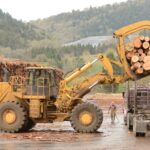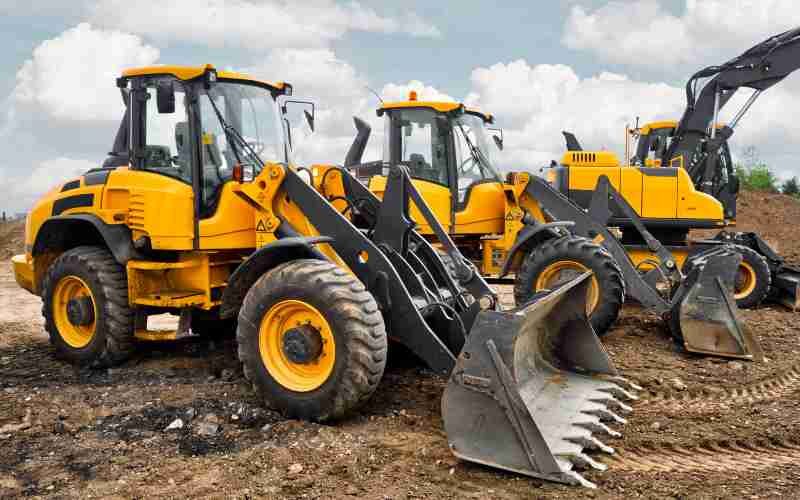Choosing the right heavy equipment dealer is a pivotal decision for businesses in industries such as construction, mining, and agriculture. The right dealer can provide access to quality equipment, reliable support, and expert advice that ensures smooth operations. On the other hand, a wrong choice may lead to operational delays, higher costs, and frustrations. To make an informed decision, here are some essential questions to ask when selecting a heavy equipment dealer.
1. What Brands And Equipment Do They Offer?
One of the first aspects to consider is the variety of brands and equipment a dealer represents. Not all heavy equipment is created equal, and some brands may be better suited to specific tasks or environments than others. Ensure the dealer offers reputable brands known for their reliability, performance, and ease of maintenance.
If your business specializes in specific types of projects, inquire whether the dealer has the right machinery to meet your needs. For example, do they carry excavators, loaders, bulldozers, or cranes that align with your requirements? A diverse inventory ensures you can source all your equipment from a single, trusted partner.
2. Do They Provide Maintenance And Support Services?
The longevity and effectiveness of heavy machinery depend on regular maintenance, which is a major expense. A reputable dealer should offer maintenance and repair services either in-house or through a trusted network.
Ask if they provide on-site service, preventive maintenance programs, and emergency repairs. Dealers who offer comprehensive support reduce downtime and keep your projects on track. Additionally, confirm the availability of spare parts. A dealer with a robust inventory of parts will ensure faster repairs and minimal disruptions.
3. What Financing Options Are Available?
Heavy equipment purchases can be expensive, and many businesses prefer to spread out the costs through financing. Inquire about the financing options the dealer provides, including leasing and installment plans.
Leasing options can be particularly attractive for businesses that need access to newer models without the upfront cost. Understanding the conditions, interest rates, and any additional costs related to these programs is essential, though. A transparent dealer will provide clear, detailed information to help you make the best financial decision.
4. Can They Provide References Or Testimonials?
Reputable dealers should have a history of happy clients. Request references or look for testimonials on their website or social media platforms. Feedback from other clients provides insights into the dealer’s reliability, customer service, and after-sales support.
Request concrete instances of how they have benefited customers in your sector. This will give you a clearer picture of whether they can meet your unique business needs.
5. How Experienced Are They In The Industry?
Experience matters in the heavy equipment industry. A dealer with years of experience is more likely to understand the complexities of different projects and provide tailored solutions.
Inquire about their history, expertise, and whether they specialize in specific industries. An experienced dealer can offer valuable advice on equipment selection, usage, and maintenance, ultimately saving you time and money.
6. What Are Their Policies On Warranties And Returns?
Warranties are a critical aspect of any heavy equipment purchase. They provide peace of mind and protect your investment against manufacturing defects or other issues.
Ask the dealer about the warranty coverage on their equipment and the process for making claims. Additionally, inquire about their return policy in case the equipment does not meet your expectations or requirements. A transparent policy demonstrates the dealer’s commitment to customer satisfaction.
7. Do They Offer Training And Safety Programs?
Heavy equipment requires skilled operators to ensure safety and efficiency. Some dealers provide training programs to help your team learn how to operate the equipment properly.
If your team lacks experience with specific machinery, ask whether the dealer offers training or can recommend certified programs. Proper training minimizes accidents and enhances productivity.
8. How Do They Handle Logistics And Delivery?
The logistics of transporting heavy equipment can be complex, especially for large or specialized machinery. A reliable dealer should assist with delivery, ensuring that equipment reaches your location in good condition and on time.
Discuss the logistics process, delivery timelines, and any associated costs upfront to avoid surprises later.
Conclusion
Selecting the right heavy equipment dealer is more than just finding a supplier—it’s about choosing a partner who understands your business, supports your operations, and helps you achieve your goals. You can evaluate the dealer’s products, services, and dependability by posing these important queries.
A trustworthy dealer will prioritize transparency, quality, and customer service, making them an invaluable asset to your business. Take the time to conduct thorough research and make a decision that ensures long-term success for your projects.









